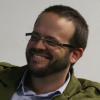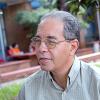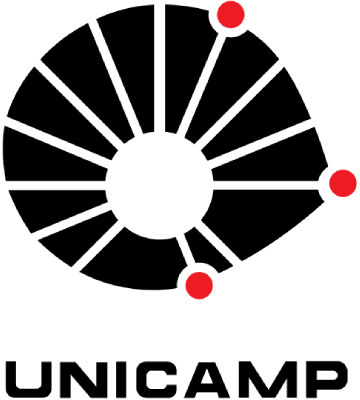
Research Topics
Line 1 – Social movements, work and political participation
Social movements and public policies
Work and trade unionism
Social classes and collective action
This line addresses the political actions of organized and non organized sectors of the society that undertake different forms of collective action aiming at the achievement of their interests. This theme is approached from four perspectives: 1) the standards of relation between civil society and State, as well as their impacts on political processes and the struggle for citizenship rights, in national and international contexts; 2) the understanding of the multiple influences across social movements and public policies, social mobilization and political contestation processes; 3) changes in labor relations and their impacts on union conceptions and practices; 4) the role of social classes with their gender and race interfaces in the structuring of social conflicts and protests.
Line 2 – Studies on Political Regimes and Institutions
Studies on democracy
Parties, elections and political representation
Legislative Studies
Law and judicial institutions
Criminal justice policy and public security
This line comprises theoretical and empirical studies on the organization and operation of political regimes and their institutions, emphasizing the processes of democratic construction and the impasses to their operation put by the contemporary society. It addresses reflections on political representation, studies on competition, parties and elections, as well the operation of legislative powers. It also addresses theoretical and empirical research on State and law, judicial institutions, criminal and public security policies and the field of studies on human rights.
Line 3 – State, development and comparative politics
State and economic development
State and social classes
Public policies and social well-being
International politics and foreign policy
International political economy
International governance, normativities and human rights
This line covers themes related to the complex relations involving State, society and economic development. The multiple forms of State intervention in economy are the condition for the economic development and can define, to a large extent, the profile of such development. With regard to politics, the modalities of this intervention will depend on the State relation with the different social classes and layers, the staff that holds positions in the state institutions and the political regimes in force. Such intervention results, in its turn, in distinct modalities of economic policy, social policy and foreign policy under given economic and social conditions both in the country and in the international scenario.
Line 4 – Political theory and thought
Political theory
History of political thought
Contemporary political thought
Constitutional thought
This line of research covers the main lines, traditions, works and authors of modern and contemporary political thought, comprising research on history of political ideas, contemporary political theory and constitutional thought. Research on history of Italian, Brazilian and Latin-American political thought is also outstanding. In addition to the study of classical authors’ works, this line of research also includes investigations on theoretical lines, ideologies and political discourses in a wider sense, such as: liberalism, conservatism, republicanism, Marxism, nationalism, populism or fascism.
1. Movimentos sociais, trabalho e participação política
Esta linha se dedica aos estudos teóricos e empíricos sobre conflitos sociais e mudança política, a partir de três grandes eixos de investigação: 1)reflexão sobre as mudanças do mundo do trabalho e seus impactos sobre a organização dos trabalhadores, relações de classe, legislação trabalhista e sindicalismo; 2) análise das reconfigurações do ativismo contemporâneo, à direita e à esquerda, com ênfase sobre movimentos sociais, protestos e ativismos digitais; 3) estudos sobre a participação e o controle social.
Temas de Pesquisa:
- Participação e controle social
- Transformações do mundo do trabalho, sindicalismo e classes sociais
- Movimentos sociais e protestos
- Reconfigurações do ativismo e mídias digitais
Docentes Permanentes

Ana Claudia Chaves Teixeira

Andréia Galvão

Luciana Ferreira Tatagiba

Wagner de Melo Romão
Docentes Colaboradores

Ângela Maria Carneiro Araújo

Artionka Manuela Góes Capiberibe
2. Democracia e instituições políticas
Esta linha compreende estudos teóricos e empíricos sobre a organização e o funcionamento de regimes democráticos e suas instituições, enfatizando os processos de construção democrática e os impasses ao seu funcionamento colocados pela sociedade contemporânea. Aborda reflexões sobre a representação política, os estudos sobre competição, partidos e eleições, a investigação sobre a produção de políticas públicas e o funcionamento do poder legislativo e das suas relações com outros poderes.
Temas de Pesquisa:
- Regimes democráticos e processos de democratização
- Partidos e representação política
- Comportamento eleitoral a opinião pública
- Políticas públicas
- Estudos legislativos
Docentes Permanentes

Andréa Marcondes de Freitas

Oswaldo Martins Estanislau Do Amaral

Rachel Meneguello

Wagner de Melo Romão
Docentes Colaboradores

Valeriano Mendes Ferreira Costa
3. Estado e regimes políticos
Esta linha de pesquisa se dedica a estudos teóricos e empíricos sobre o Estado e os diferentes regimes políticos de sua conformação histórica, a partir de três perspectivas: (a) a da relação entre Estado e capitalismo; (b) a da relação entre regimes políticos nacionais e internacionais; e (c) a da relação entre Estado, direito e direitos humanos.
Temas de Pesquisa:
- Direitos humanos e regimes constitucionais
- Estado e classes sociais
- Estado e desenvolvimento econômico
- Regimes políticos e econômicos internacionais
- Violência, segurança e mobilizações do direito
Docentes Permanentes

Andrei Koerner

Armando Boito Júnior

Frederico Normanha Ribeiro de Almeida

Sebastião Carlos Velasco e Cruz
Docentes Colaboradores

Débora Alves Maciel

Valeriano Mendes Ferreira Costa
4. Teoria e pensamento político
Esta linha de pesquisa tem por escopo as principais correntes,tradições, obras e autores do pensamento político moderno e contemporâneo, abrangendo pesquisas em história das ideias políticas, teoria política contemporânea e pensamento constitucional. Além do estudo das obras de autores clássicos, a linha de pesquisa também abarca investigações sobre correntes teóricas, ideologias e discursos políticos em sentido mais amplo, tais como: liberalismo, conservadorismo, republicanismo, marxismo, nacionalismo, populismo e facismo.
Temas de Pesquisa:
- História do pensamento político
- Pensamento político contemporâneo
- Pensamento constitucional
- Teoria política
Docentes Permanentes

Alvaro Gabriel Bianchi Mendez

Andrei Koerner

André Kaysel Velasco e Cruz

Armando Boito Júnior


